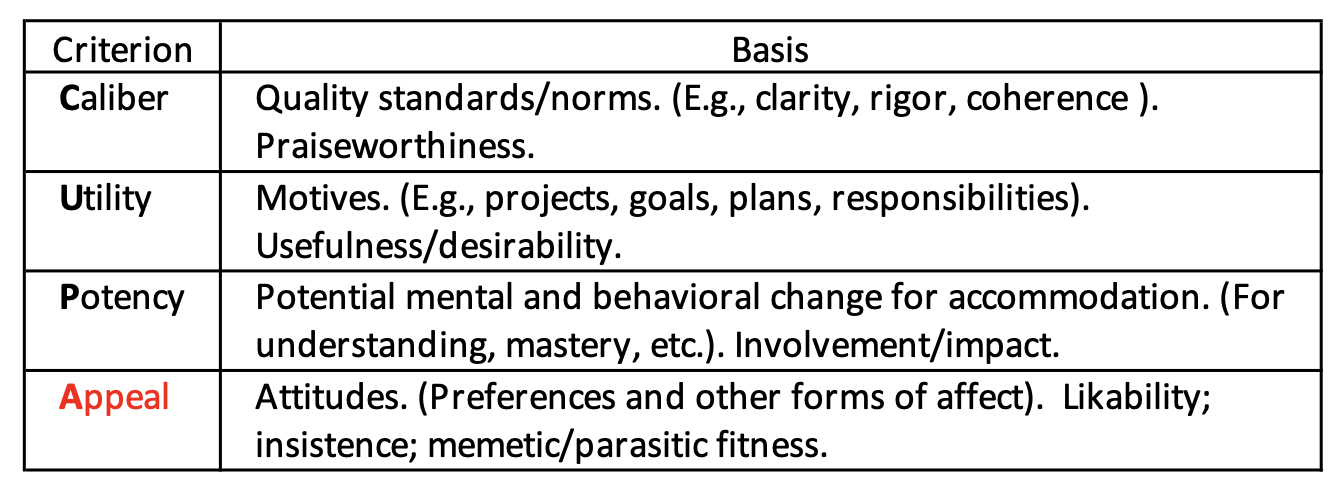Earlier this week I submitted a brief chapter called “Beyond the CRAAP test and other introductory guides for assessing knowledge resources: The CUP’A framework” for publication in the 2nd edition of the Future of Text book edited by Frode Hegland. Here’s Table 1 of the chapter:

Each of my Cognitive Productivity books contains an entire chapter on the CUP’A framework, so it was difficult to capture the essence of this in 1,000 words, while adding substantial new content.
Amongst other things, my new chapter alludes to the role of insistence in evaluating information. Insistence, to a first approximation, is the propensity of mental content (motivators etc) to captivate executive functions. Insistence is a heuristic “measure” of the importance and urgency of a motivator. (Measure is in scare quotes because it may be an implicit emergent property.) Technical concepts of anger, grief and infatuation have been defined in terms of insistent motivators. Insistence is a bottom-up property. A closely related and yet significantly different concept is salience (a ‘dry’ attentional property that shows up in attention and perception research). The concept of insistence might be helpful in characterizing “memetic fitness” and “parasitic fitness” of ideas and “idea pathogens” as Gad Saad calls them in his 2020 book The Parasitic Mind.
While we’re on the subject of Saad’s book, I was surprised that Saad did not reference the work of Keith Stanovich. Stanovich over a decade ago introduced the concept of “infected mindware”. Stanovich has several books and chapters on thinking dispositions that are directly pertinent to Saad’s thesis. Stanovich also coined the term “infected mindware” and “dysrationalia” . He explained how intelligent people (high g factor) can make major mistakes by either lacking adequate mindware, having infected mindware or being cognitively lazy. All very pertinent to Saad’s book. Both Stanovich and Saad are Canadian academics. The Cognitive Productivity books are also extremely pertinent to Saad’s book for that matter.
My question, about Saad’s book, illustrates the caliber criterion of CUP’A, namely that documents should be well and preferably explicitly grounded in previous work.
Here’s a web page with more information about the CUP’A framework and my latest chapter: CUP’A: A framework for assessing knowledge resources – CogZest.
See also
- CUPA Project page
- On insistence: Beaudoin et al, 2020 Perturbance: Unifying Research on Emotion, Intrusive Mentation and Other Psychological Phenomena with AI
- What intelligence tests miss: The psychology of rational thought. by Keith Stanovich.
- CogZest blog posts tagged “CUPA”.
